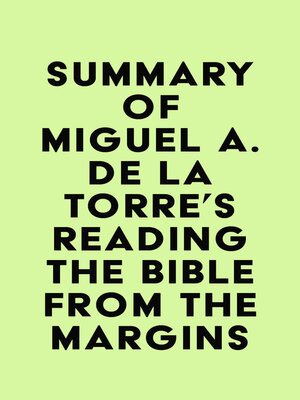
Sign up to save your library
With an OverDrive account, you can save your favorite libraries for at-a-glance information about availability. Find out more about OverDrive accounts.
Find this title in Libby, the library reading app by OverDrive.



Search for a digital library with this title
Title found at these libraries:
| Loading... |
Please note: This is a companion version & not the original book. Book Preview:
#1 When we open the Bible or any text, we rarely question how we define the words we find on the printed page. We assume that the words we read have universal meaning within that society. However, words are linguistic signs that point to something other than themselves.
#2 The dictionary is subjective. Because words are linguistic signs, the only thing we can expect to learn from the dictionary is the concept that society has historically linked or is presently linking to that particular word.
#3 In the minds of those within the dominant culture, people on the margins are disproportionately poor and disenfranchised not as a direct result of the Euroamericans' privileged space, but because of the inferiority associated with their darker skin pigmentation.
#4 When we read the Bible with modern eyes, we must ask which people were politically superior in the region. The answer, Africans, specifically Egyptians. To marry a black person was to marry upward, which was seen as a bad thing at the time.






